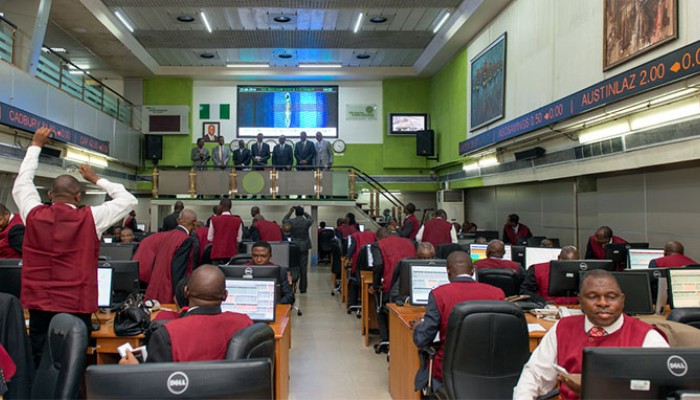…CBN extends OMO ban to secondary market
Nigerian stocks are getting cheaper but nobody is buying, as hopes of a rebound in the market now falter on higher yields on fixed income securities and declining interest of foreigners in Nigerian assets.
Foreigners have been dumping stocks for the most of the year in the market now trading at its lowest valuation ever, but big domestic investors who are mostly pension fund managers are unmoved even by a possible earnings recovery in the near-term.
Analysts at Cario-based EFG Hermes forecast a 14 percent earnings growth between 2019 and 2021, with non-banks’ earnings expected to recover strongly in 2020 after an expected difficult 2019, and a 2019 dividend yield forecast of 10 percent (11.2 percent for banks).
“Despite this, policy uncertainty makes it very difficult to become bullish,” the analysts said. “These factors keep us underweighted on Nigeria relative to frontier and emerging market peers.”
The policies include moves by the government to close its land borders to all trade and the Central Bank of Nigeria’s increase in minimum loan to deposit ratio to 65 percent by the end of 2019.
“The latter policy may support earnings growth for stronger banks, but it is hard to reconcile policies that force private-sector lending with those that severely restrict trade,” the analysts said in a recent note to clients.
With foreign inflows of N34.92 billion in August 2019, foreign portfolio investment (FPIs) into equities outweighed outflows of N28.98 billion for the first in one year before the period, according to the Nigerian Stock Exchange (NSE). The trend shows the disinterest that has trailed the market so far in the year.
On the other hand, Nigerian pension funds have seen growth in their asset under management up to a compounded annual growth rate of 16 percent as at August from about N4.5 trillion in August 2014 to more than N9 trillion in August 2019. However, their exposure to stocks has reduced considerably, no thanks to high-yield on OMO bills.
In recent years, the OMO window has become an avenue for local investors including non-banks as well as foreign investors to benefit from the attractive rates offered by an aggressive CBN which has attracted hot money into Nigeria but has seen a rotation of funds from stocks to the money market.
Portfolio inflows into equity and bond markets tanked in the second quarter of 2019 to $496.84 million and $316.28 million from N1 billion and $400 million in the same period a year earlier. However, inflows to money market recorded a 30 percent surge to $3.5 billion within the period.
Similarly, OMO issuances by the CBN have surged from $600 million in 2016 to $2.4 billion in 2018, according to US-based Citigroup Inc., while total issuance up to August 2019 is around $1.4 billion.
This is despite the continuous depreciation of equities on the Nigerian market. Nigeria’s equity market is down 16.14 percent since the start of the year and is below its December 2010 levels.
The market, however, currently has a 4.8x 12-month forward Price to Earnings but a rally in the stock market is near impossible, if history is any guide, following the persistent decline in net foreign assets. An increase in the nation’s net foreign assets has always correlated with recent stock market rallies.
The bullish trend of stocks between August and December 2015 was accompanied with corresponding growth in net foreign assets. A similar trend was always observed between April and August 2017 as well as the first three months of 2018.
Meanwhile, the Central Bank of Nigeria said it has barred local corporates and individuals from participating in both primary and secondary activities of OMO market, as it makes extra efforts to boost credit flow to the real sector of the Nigerian economy.
In a circular released Thursday titled “LETTER TO ALL BANKS, RE: OPEN MARKET OPERATIONS AUCTIONS”, the CBN said: “Please note that the restriction on Open Market Operations Bill purchase by DOMESTIC corporates (inclusive of non-bank financial institutions) and individuals applies to both primary and secondary market activities.”
The directive restricting participants that can buy the high-yielding central bank bonds does not include foreign portfolio investors, as they currently hold around $18 billion worth of outstanding OMO bills and their carry-trade activities support the naira.
Source: Businessdayng





